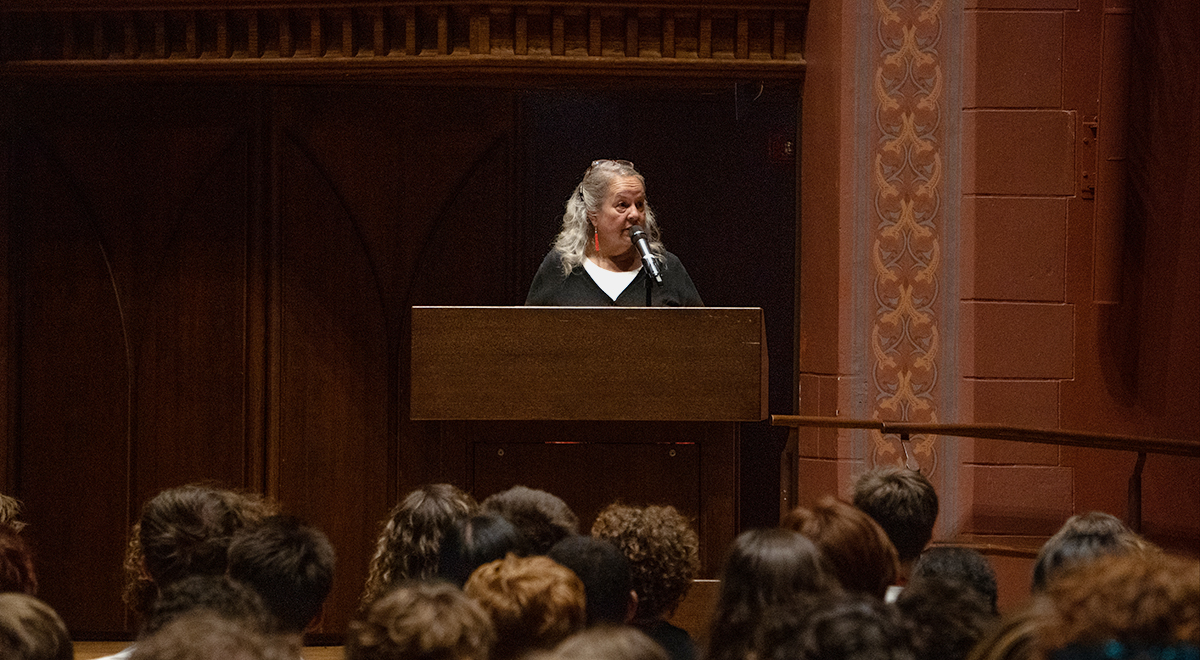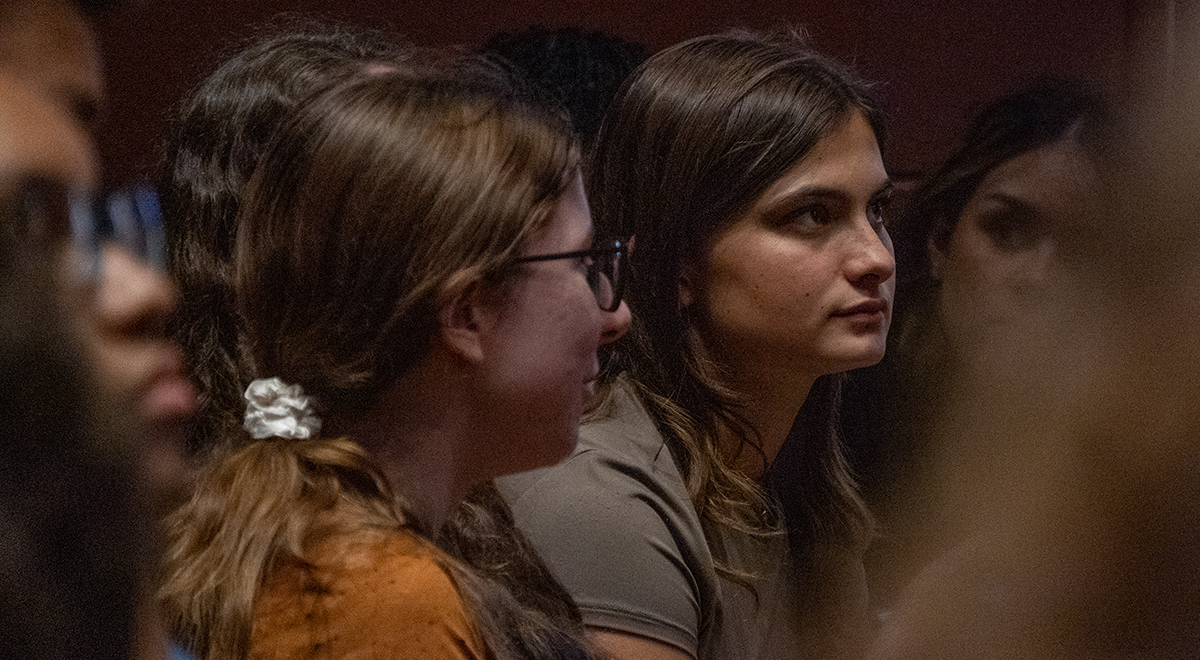At Common Read, Author Asks Class of 2028 to Reimagine Relationships with the Earth

During Robin Wall Kimmerer’s first days as a university student, a professor asked why she wanted to study botany. She replied that she wanted to understand why goldenrod and asters — flowering plants cultivated by Native Americans — looked so beautiful together, a perspective influenced by her upbringing as a member of the Citizen Potawatomi Nation. The professor ridiculed her, dismissing her comment as unscientific. “Your way of thinking is not welcome here,” she recalled him saying.
Years later, Kimmerer’s way of thinking received a standing ovation from students during their first days at Wesleyan. In addition to being a botanist at the SUNY College of Environmental Science and Forestry, Kimmerer is the author of Braiding Sweetgrass: Indigenous Wisdom, Scientific Knowledge, and the Teachings of Plants (Milkweed Editions), a 2013 essay collection that wields both scientific inquiry and indigenous knowledge in exploring ecological interconnectedness and our obligations to the Earth.
Along with selling two million copies and spending the last three years on the New York Times bestseller list, Braiding Sweetgrass was also unanimously selected by Wesleyan’s First Year Matters Committee as the Common Reading—a book incoming students read to lay a foundation for further academic exploration— for the Class of 2028.
During her keynote address before a packed audience at Memorial Chapel on August 30, Kimmerer relayed more of her memories as one of the only indigenous people at her institution—the red plaid shirt she bought to fit in and the flat expression she wore in her first-year student ID photo.
More broadly, she recalled how embracing seemingly opposing strands of knowledge fosters holistic perspectives. “We are harnessed to an economy and a worldview which is relentless in saying ‘what more can we take,’” Kimmerer said. “. . .I think the question is not ‘what more can we take,’ but ‘what does the earth ask of us?’”
Her rousing talk centered on gratitude and reciprocity toward the planet we all inhabit. Kimmerer also pushed back on the legacies of indigenous erasure that she felt reverberate in her own life. While discussing the insidious qualities in seemingly benign language, Kimmerer suggested using “ki” — an indigenous word whose plural form is, as it happens, “kin” — to restore our relationships with non-human beings. (“Do we ever call a member of our own species ‘it’?” she asked.)
With our planet in dire ecological straits, she emphasized a need to embrace the stories, science, and ways of being of our ancestors before moving forward. “This is collectively our work for the flourishing of life on the planet,” Kimmerer said.

Before the Class of 2028 broke away for small-group discussions, Kimmerer took their questions. Kimmerer called the practice of indigenous land acknowledgement, “a tool for anti-erasure,” not its totality. When a student asked her how they might hold onto their own indigenous heritage; Kimmerer advised studying the language, keeping the history alive, and working to decolonize systems. “But never forget who you are,” Kimmerer said, “and strengthen who you are.”
In introductory remarks, Assistant Dean, Director of Community Standards and the First Year Matters Committee Chair Kevin Butler welcomed the Class of 2028 and alluded to his lunchtime conversation with Kimmerer that turned to a particular word: love. “Take a second and look at the other people beside you, and above and below you,” Butler said, scanning the pews and the balcony. “If you treat those people with love, and not fear, all of us will be able to move forward and be successful here at Wesleyan.”

